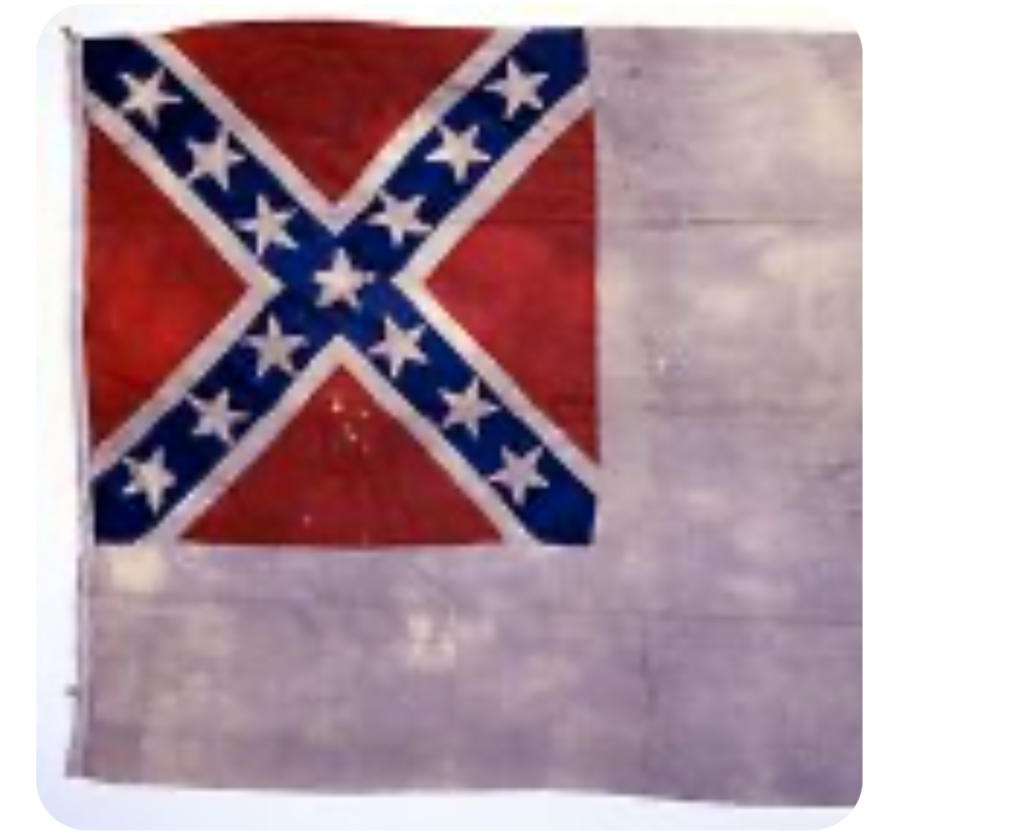By SUZANNE DOWNING / MUST READ AMERICA
(Editor’s note: This column was published at Must Read Alaska on June 19, 2020 and is republished on June 22, 2021.)
Americans are being carpet-bombed by stories about Juneteenth, celebrating the day that 155 years ago the final fighters of the Civil War got the memo that the slaves were emancipated. We’ll leave that to the other pundits to discuss, because we’ve got our own Civil War history in Alaska to review.
While Texas was just getting word of the end of the war on this day in 1865, a Confederate war ship was still prosecuting a sponsored piracy campaign and taking down the commerce of the Union whaling industry.
Few in America have heard of Alaska’s unique role in the end of the Civil War.
In June of 1865, the Confederate raiding ship CSS Shenandoah was underway toward St. Lawrence Island, in the Western Bering Sea, where Yankee whaling ships were working.
The war ship was burning and sinking the U.S. whaling fleet in its path after the captain of the Shenandoah had gotten rough coordinates for where the Yankee whalers were working. He took them from a whaling ship in the North Pacific.
By this time in 1865, the Shenandoah had destroyed a number of these American whaling ships — as many as 20.
On June 22, 1865 the Shenandoah fired what is said in some accounts to be “the last shot” of the Civil War, aiming upon Yankee whalers, some 74 days after General Robert E. Lee had surrendered his Confederate forces at the Appomattox courthouse, and nearly two months after Confederate Army had actually ended the war on land.
There are lots of credible sources that say the event occurred on June 28, 1865, and that whaling ships were still being burned and sunk right and left on June 22, but most historians agree on one thing: This was a well-executed mission and it decimated the whaling fleet.
When Commanding Officer Lt. James Iredell Waddell of the Shenandoah learned of the South’s surrender, he made his way south. Some accounts say he didn’t believe the war was over and was heading to the young state of California to shell San Francisco, another commercial center. California had supplied thousands of soldiers for the Union war effort, and troops from California had pushed the Confederate Army out of Arizona and New Mexico in 1862.
On the way south, his ship encountered a British ship that confirmed the war had ended and that if he showed back up in the United States he would be tried and hanged.
By this time, Waddell had a bounty on his head and he decided to sail his teak-hulled war ship on to Liverpool, England, where he surrendered on Nov. 6, 1865.
Waddell’s was the last surrender of the Civil War, and he presided over the lowering of the Confederate flag on his ship while at anchor on the River Mersey.
The ship itself was put in the custody of the British government via a letter that Captain Waddell penned himself and walked up the steps to the Liverpool Town Hall, presenting it to the Mayor of Liverpool.
The Shenandoah is the only Confederate ship to circumnavigate the globe. Her flag is now in the possession of the American Civil War Museum, which brings it out only occasionally, due to its size.

The Shenandoah, which was commissioned to destroy the commerce of the North, had spent nearly a year at sea and had captured 38 ships — two thirds of them after the Confederacy had surrendered. Waddell had reportedly taken more than 1,000 Union prisoners.
The history of how the news reached Captain Waddell is conflicted. The Civil War Museum says that raids continued in Alaska, which was in Russian ownership at the time, until August.
After the Civil War ended, the whaling business fell on hard times, as it was no longer essential to the war effort, and with so many of the Union whaling vessels destroyed, America lost footing in the world as a leader in shipping.
And now, 155 years later, Democrats are destroying the monuments to their Confederate war heroes, and, ironically, they are still trying to destroy United States commerce. Also somewhat ironically, Republicans are still trying to respect the confederacy and its history, because it is the history of the nation.
Alaska had a unique role back in the 1860s. It was not American territory, but it soon became part of the United States under the advocacy of abolitionist William Seward, secretary of State for President Abraham Lincoln. Democrats in Alaska are now trying to remove the statue of Seward from in front of the Capitol.
A nation should be able to talk about its Civil War without getting into another one. The important lesson is that we learn from history, so that we don’t repeat it.
Suzanne Downing is editor and publisher of Must Read Alaska and writes a Must Read America column for NewsMax.